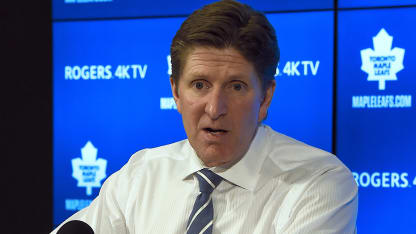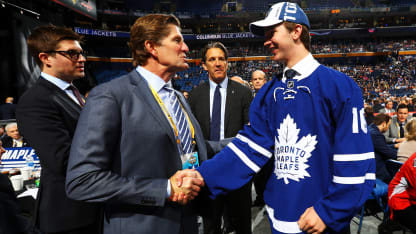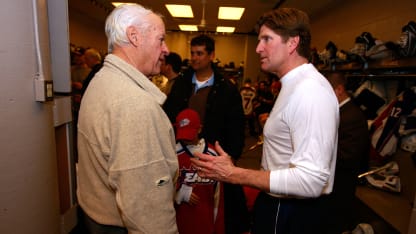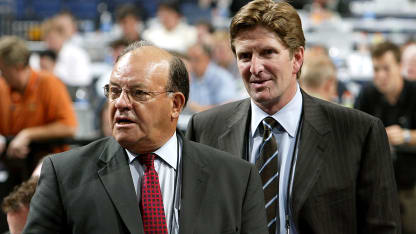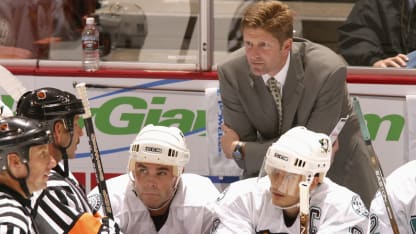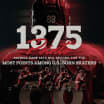Something as simple as wearing a tie, or the respect a player shows for himself, his team, his fans and the game, are all fundamentals of his teaching.
"There are some things that are just part of the game. You don't change that stuff," Babcock said. "That's the part for me that is so important."
In Toronto, as he did in Detroit, Babcock brings the game's legends into the midst of his team, welcoming them and enjoying the priceless impression they make on his young players.
"That's why you need good men in your locker room," he said of the alumni. "You need good men to guide them so they have the respect for the game that we've all loved but one that also is feeding our families."
Babcock vividly recalls his first visit to the Hockey Hall of Fame in Toronto, for the 2009 induction of Red Wings captain Steve Yzerman. He was reminded of it last week with the election of goaltender Rogatien Vachon.
"Wasn't that great?" he said of Vachon. "When I first started playing hockey, we were always Rogie. In 1972, when I was 9, playing in the street, you were always 'Ro-gie Va-chon!' Once you see the Hall of Fame, you realize it's a club like no other."
Babcock gets goosebumps in the presence of the shrine's honored members. During his decade in Detroit, icons Howe and Ted Lindsay moved comfortably around and within the team, as did their fellow Hall of Fame member Scotty Bowman, the legendary coach Babcock succeeded. Only in his final season, when the coach's quarters were renovated, did Babcock feel he could change anything in the office Bowman had occupied.
